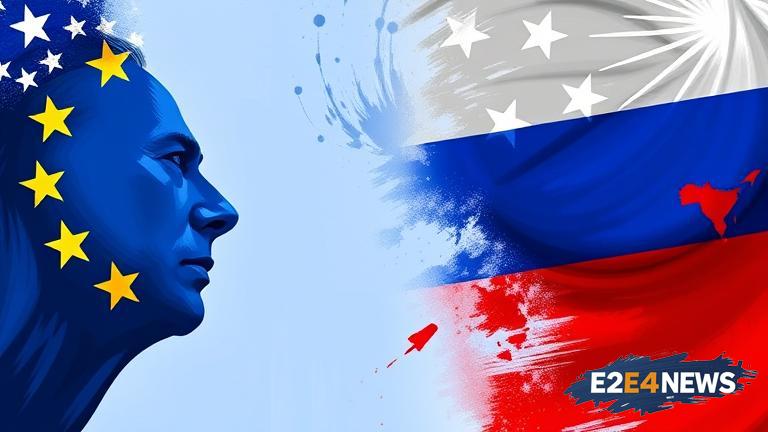The United States and the European Union have been vocal about their opposition to Russia’s actions in Ukraine, imposing sanctions and urging other countries to cease trade with the nation. However, a recent report has revealed that both the US and EU continue to engage in significant trade activities with Russia, sparking accusations of hypocrisy. The report highlights the inconsistencies in the policies of the US and EU, which have been urging India to stop its trade with Russia. The US and EU have been criticizing India for its continued trade with Russia, despite the sanctions imposed by the West. However, it appears that the US and EU are not practicing what they preach, as they continue to import goods from Russia. The report notes that the US has been importing significant amounts of Russian goods, including oil, natural gas, and metals. Similarly, the EU has also been engaging in trade with Russia, with many of its member states importing Russian goods. The continued trade between the US, EU, and Russia has raised questions about the effectiveness of the sanctions imposed by the West. The report suggests that the sanctions have had little impact on Russia’s economy, and that the country continues to find ways to circumvent them. The US and EU have been trying to persuade India to stop its trade with Russia, citing the need to isolate the nation economically. However, India has refused to comply, citing its own economic interests. The Indian government has stated that it will continue to engage in trade with Russia, as long as it is in the country’s economic interests. The report notes that India’s trade with Russia is significant, with the two countries engaging in billions of dollars’ worth of trade every year. The US and EU have been trying to persuade India to reduce its dependence on Russian goods, but so far, their efforts have been unsuccessful. The report suggests that the US and EU are unlikely to succeed in their efforts to persuade India to stop its trade with Russia, given the significant economic benefits that India derives from the trade. The continued trade between India and Russia has also raised questions about the effectiveness of the US and EU’s foreign policy. The report notes that the US and EU’s failure to persuade India to stop its trade with Russia has exposed the limitations of their influence in the region. The US and EU have been trying to build alliances with other countries in the region, but their efforts have been hindered by their own inconsistencies. The report suggests that the US and EU need to re-evaluate their foreign policy and develop a more consistent approach to dealing with Russia. The US and EU also need to take into account the economic interests of other countries, such as India, and develop policies that are more nuanced and effective. The report notes that the US and EU’s failure to develop a more effective foreign policy has significant implications for global security and stability. The continued trade between the US, EU, and Russia has also raised questions about the role of international institutions in regulating global trade. The report suggests that international institutions, such as the World Trade Organization, need to play a more active role in regulating global trade and preventing the kind of hypocrisy and inconsistencies that have been exposed in the US and EU’s policies towards Russia. The report concludes that the US and EU’s hypocrisy has been exposed, and that they need to develop a more consistent and effective approach to dealing with Russia. The US and EU also need to take into account the economic interests of other countries, such as India, and develop policies that are more nuanced and effective. The report notes that the US and EU’s failure to develop a more effective foreign policy has significant implications for global security and stability.
